




 |
   |
 |
|
Keane John Keating Jim Keays Kedama |
Harlon & Maureen Keel Speedy Keen Rodd Keith Derek Keller |
Josh Kelley Roberta Kelly Kennedy |
Kennedy, Kirkpatrick, Madeira & Sprague Michael Kenny Kenso |
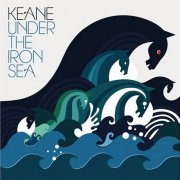 |
Under the Iron Sea (2006, 50.21) *½/T½ |
|
| Atlantic Is it Any Wonder? Nothing in My Way Leaving So Soon? A Bad Dream Hamburg Song Put it Behind You The Iron Sea |
Crystal Ball Try Again Broken Toy The Frog Prince |
|
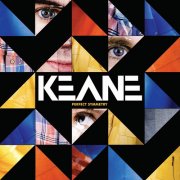 |
Perfect Symmetry (2008, 50.44) *½/½ |
|
| Spiralling The Lovers Are Losing Better Than This You Haven't Told Me Anything Perfect Symmetry You Don't See Me Again and Again Playing Along |
Pretend That You're Alone Black Burning Heart Love is the End |
|
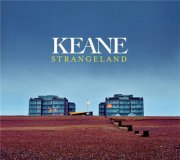 |
Strangeland (2012, 45.19) **/T½ |
|
| You Are Young Silenced By the Night Disconnected Watch How You Go Sovereign Light Café On the Road The Starting Line |
Black Rain Neon River Day Will Come In Your Own Time Sea Fog |
|
Current availability:
Mellotron used:
If you're British, there's no way you'll have been able to avoid Keane; super-successful, bland-as-shit posh-boy trio whose horrible, lifeless music seems to define popular 'taste' in the first decade of this century. Under the Iron Sea is their second album, after 2004's multi-million-selling Hopes & Fears and, while popular opinion seems to be erring on the side of 'it's their best work', I have to ask: "So what's their worst, Daddio?" This is fucking awful. No, it really is; flaccid, faux-emotional, hand-wringing nonsense of the most insipid kind, suffused with Tom Chaplin's whiny voice and infuriating vocal lines. I've nothing against gentle music, but this isn't gentle; it's turgid pap. No wonder they're so bloody popular; they're shit.
Instrumentally, of course, Keane are unusual in mostly eschewing guitars in favour of piano and not any old piano, but a Yamaha CP70 electric grand, of the kind ubiquitous in the late '70s and '80s, before the rise of affordable sample players. Keyboard player/main writer (so it's his bloody fault) Tim Rice-Oxley also gets some other vintage stuff on here, not least the harmonium on Hamburg Song, although I suspect most of the album's string sounds are generic modern ones. An online interview confirmed the Mellotronic rumours re. the album: Rice-Oxley played a machine in the New York studio where they worked on four tracks. Anyway, what we get is distant strings on opener Atlantic, slightly more obvious ones on A Bad Dream, major (male?) choirs on The Iron Sea (an instrumental, it's easily the album's best track) and more choirs, right at the end of closer The Frog Prince.
2008's Perfect Symmetry is stylistically slightly different, but every bit as bad as its predecessor, the highly irritating 'retro' drum machine on several tracks being a real bone of contention, as are the shameless Bowie ripoff Better Than This (Ashes To Ashes, for what it's worth) and the excessive length of nearly every track, in true Be Here Now style. Other tracks triggering particular hatred include opener Spiralling, with its repeated 'Woo!'s (apparently a reference to wrestler Ric Flair. Who?), the title track and cheeso closing ballad Love Is The End; suffice to say, this album has no redeeming features. Rice-Oxley plays (real?) 'Strawberry Fields' Mellotron flutes on Pretend That You're Alone, although the album's string parts appear to all be either real or synthesized.
After a lengthy (but not lengthy enough?) wait, 2012's Strangeland is, perhaps surprisingly, marginally less horrible than its predecessors; either that, or I'm getting used to this stuff. Let's hope not. Less homicide-inducing material includes Watch How You Go and, again surprisingly, closing ballad Sea Fog, not that I'd take that as any kind of recommendation, you understand. Rice-Oxley uses far more Mellotron this time round (recent YouTube footage indicates that they use one live), with skronky strings and flutes on Disconnected, background choirs on Watch How You Go and Neon River and a wobbly flute line (and cellos?) on Black Rain.
See: Mt. Desolation
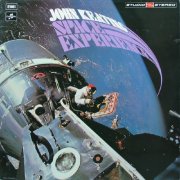 |
Space Experience (1972, 40.25) **½/T |
|
| I Feel the Earth Move The Unknown Planet Rocket Man Prelude to Earthrise Star Trek Space Agent Jesus Christ Superstar Upon Another Earth |
The Sound of Silence Signal to Saturn |
|
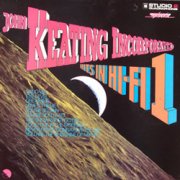 |
Hits in Hi-Fi 1 [as John Keating Incorporated] (1974, 32.59) **/½ |
|
| Love's Theme Touch Me in the Morning You Are the Sunshine of My Life Eye Level Dreaming Never Never Gonna Give You Up You're So Vain The Show Must Go on |
Vado Via Where You Lead |
|
Current availability:
Mellotrons used:
John(ny) Keating (1927-2015) was a composer and arranger back in the days of 'light entertainment', releasing a slew of album over the course of a decade or more in the '60s and '70s, some of which were issued on CD during the appalling Lounge revival of the '90s.
1972's Space Experience is clearly a cash-in on the era's fixation with the Apollo programme and SF films, notably 2001: A Space Odyssey, complete with a generic library shot of a space-walk on the sleeve. Its contents are split evenly between Keating's own compositions and instrumental covers of well-known material that could, at a real pinch, be construed to have some kind of space connection, notably Elton John's Rocket Man and, er, the Star Trek theme. Not sure what Jesus Christ Superstar's doing on there, mind... The sleeve boasts the slogan 'featuring the E.M.S. Synthi VCS3 Music Synthesizer', while saying nothing about Mellotrons whatsoever. However... the strings sitting underneath the real ones sound an awful lot like the Mellotronic variety on Prelude To Earthrise, Space Agent, Upon Another Earth and The Sound Of Silence (yes, that one, for no obvious reason). Of course, uncredited Mellotron from the '60s was hardly unheard-of and this album, despite its release date, is more a '60s record than one from the '70s.
After a handful of (to my knowledge) Mellotron-free releases, 1974's Hits in Hi-Fi 1 goes for more of a Thunderbirds graphics vibe on the sleeve, while Keating eschews the orchestra completely (budgets, eh?), enlisting the help of Francis Monkman (Curved Air, er, Sky) on a pretty cool selection of gear, 'some of which at the time of recording were prototypes'. Sadly, the album's pretty awful, making Space Experience sound like the voice of genius, Keating's originals actually sounding cheesier than the handful of covers he tackles this time round. Although one of those pieces of cool gear is a 'Mellotron 400', all the (considerable) strings work on the album seems to emanate from one of the credited three string synths, meaning that the only place the Mellotron crops up is the background choirs on Vado Via, the occasional flute part clearly being synth.
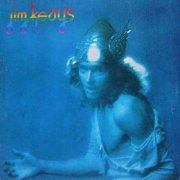 |
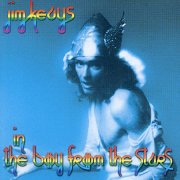 |
The Boy From the Stars (1974, 51.57/78.21) ***/0 (½) |
|
| The Boy From the Stars Take it on Easy Nothing Much Left Space Brothers Alchemical Takeover Urantia Kids' Blues The Right Way to Go |
Reason to Be Living [CD adds: Inter-Planetary Boogie Give it Up (Cocainut) For Someone Interview with John O'Donnell 3XY Nothing Much Left/Urantia (live)] |
||
Current availability:
Mellotron used:
With hindsight, David Bowie has an awful lot to answer for; his arty approach struck a chord (usually minor) with thousands of musicians worldwide, not least in the Antipodes, giving us not only New Zealand's Alastair Riddell, but also Australia's Jim Keays (ex-Aussie heroes Master's Apprentice). 1974's concept effort, The Boy From the Stars, is blatantly influenced by The Rise & Fall of Ziggy Stardust..., although Keays didn't have the same songwriting chops, unsurprisingly. It's decent enough, if rather unexciting, better efforts including the opening title track, the manic Nothing Much Left and the epic Space Brothers, but this was never going to seriously bother the Dame's hegemony.
First things first: there's no Mellotron on the original album, all string and choir parts being, well, strings and choir. However, the final bonus track on Raven's CD issue, the Nothing Much Left/Urantia segue, is taken from the 1975 Sunbury Festival, Keays backed by a cast of thousands, including Peter Robinson on Mellotron, who adds a background string part to the second half of the track, although there's no string part on the studio version. And I'm complaining? Something of a period piece, then, more for Aussie completists and nostalgia buffs than the rest of us, I fear, with next to no Mellotron.
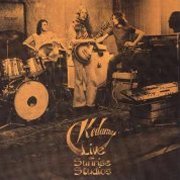 |
 |
Live at Sunrise Studios (1976, 32.57/72.21) ****/TTTT |
|
| Ouverture Finale Our Power Zugabe [CD adds: Chinese Dragon Hwrklnzg Honey Moon |
Improvisations Intermezzo Two Souls in Space Feelings Without Name] |
||
Current availability:
Mellotron used:
Kedama were a one-shot instrumental Swiss progressive trio whose sole release, Live at Sunrise Studios, was presumably the cheapest way they could find of getting their music to the listening public. I think it's probably proof that I should never try to review something after a single listen, especially in the progressive field! I started by saying that I didn't think it stood up too well now, but after only a second listen, I'm beginning to appreciate its worth. Their style was essentially complex, slightly Crimsonesque progressive, but with less of the lushness than Crimson could conjure up on a good day. It's less strong melodically, but with plenty of genuine power, particularly on Zugabe.
There's a fair bit of Mellotron use from keyboard man Richard Rothenberger on the original album (tracks 1-4), with strings all over Ouverture and Zugabe and flute parts on Finale and Our Power. The bonus tracks are almost as good, particularly Honey Moon, with swathes of strings over a driving bassline and Chinese Dragon, where they come over all Gentle Giant, both from their unreleased second album from 1977. Two Souls In Space, one of the two tracks from their first session in '73 features a solo Mellotron string part to die for; Black Rills have done a fantastic job on this reissue and, seeing as how a vinyl original (only two hundred pressed) will set you back several limbs, this CD really should suffice.
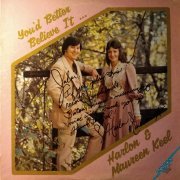 |
You'd Better Believe it (197?, 28.52) ½/TTJesus Found MeBrand New Touch I Believe Jesus I Feel So Good About it Come Unto Jesus New Shoes Brand New Tongue I Heard Footsteps Ready to Leave |
Current availability:
Chamberlin used:
Harlon and Maureen Keel? You really want to know? Married couple? Brother and sister? Both? Hailing from Buttfuck, USA, their MO was Christian country. Yup, Christian country, a genre akin to a combination of your two most unpalatable and incompatible foodstuffs, combined and buried for three months before (appropriate) resurrection and ingestion. With extreme prejudice. Of many very nasty albums I've listened to for your delectation (?) over the last twenty years, You'd Better Believe it (presumably from the late '70s, possibly even the early '80s) has to be one of the nastiest. Gloopy, turgid Nashville-lite C&W, garnished with sickly Xian lyrics, containing precisely no redeeming features whatsoever. Nasty, nasty, nasty. At least it's really short. Lowest possible rating alert.
Recorded at Larry Benson (Gateway Singers)'s studio, ol' Lazza plays his Chamberlin on several tracks, with 'orchestral replacement' strings on Brand New Touch, cellos and flutes (and female voice?) on I Believe Jesus, flutes and strings on Come Unto Jesus and full-on strings on Brand New Tongue, an intriguing concept if ever there were one. Incidentally, you may have noticed that the rip with which my 'benefactor' (yes, folks, it's Mark Medley again) has supplied me has been signed; believe me, there simply aren't any other sleeve pics available, so we get what we get. I realise sex-god Harlon's dedication to a young female fan is unreadable on the above scan, so allow me: "If you play this record backwards, Satan's virgin-mesmerizing voice will knock you up!" Classy, eh? Not rapey at all. And what sort of name is Harlon, anyway?
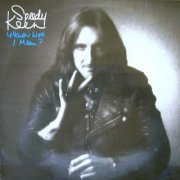 |
Y'Know Wot I Mean? (1975, 35.21) **/TCrazy LoveAlmost Eighteen Nightmare Fighting in the Streets Bad Boys I Promise You Someone to Love My Love The Profit on Ecology |
Current availability:
Mellotron used:
John "Speedy" Keen (1945-2002. Don't want to know how he got his nickname, thanks) is best known as writer of Something In The Air for his band, Thunderclap Newman, not to mention the mighty Armenia City In The Sky for The Who. Y'Know Wot I Mean? was his second solo album; sadly, it's not great; mid-paced, middle-of-the-road rock with the obligatory rock'n'roll number.
And a bit of Mellotron. Only a bit, mind you; Someone To Love is a rather drippy ballad with some Mellotron strings thrown in. Definitely a 'don't look too hard for this one' sort of record, I think.
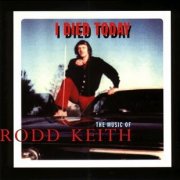 |
I Died Today (1996, recorded 1966-74, 69.36) **½/TT½ |
||
| I Died Today Hippy Happy Land The Graveyard Rock This Our Senators Tahiti The Hump Dance General Custer's Story Remains Legend Do the Pig |
T.V. Love Waiting for the High Tide I am a Real American Don't Throw My Love Away I've Been Hurt So Many Times Space Dreamed Too Long Woke Up Too Late The Music Man From Mars Do the Turkey |
In the Stillness of the Night The Flitting Firefly Elmer-21-Century Hop First Comes the Rain Gardenia Somebody Else Just Runnin' Wild Cloud Nine |
|
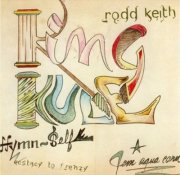 |
Ecstacy to Frenzy (2004, recorded 1966-74, 74.39) **/TShome Howe Jehovason Plays - (version one)Beat of the Traps Little Rug Bug Ecstacy to Frenzy Shome Howe Jehovason Plays - (version two) |
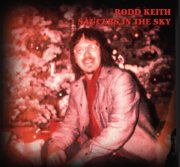 |
Saucers in the Sky (2005, recorded 1966-74, 72.56) **½/T |
||
| Lettuce and Lace You Only Want to Hurt Me Magic in Her Eyes Saucers in the Sky My Living Doll Sawdust Here Comes the Judge A Soothing Dream, But... Don't Be a Dope |
The Merry-Go-Down Go Go Girlie Winds of March Do Me Mister Buddy It's Raining Cancel My Order for Love Lost Vein of Love Telephone Call Get on My Honda, Rhonda |
Exotic Woman Los Angeles City Lights It Means That You Love Me Gloria Move Along Surfing Girl Ravens Next Time Ship for Home |
|
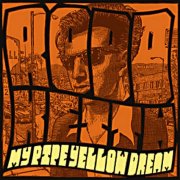 |
My Pipe Yellow Dream (2011, recorded 1966-74, 42.26) **½/TT |
|
| My Pipe Yellow Dream Baby, I'll Give it to You You Don't Have to Alibi Bury Me Deep Choo Choo Train Tired of Waiting Surfing Along Deep Velvet |
America the Not So Beautiful Search Out Your Soul, American Love Opens the Door Red Sports Car There's a Party Going on The Watchin' Man O Jesus My Savior |
|
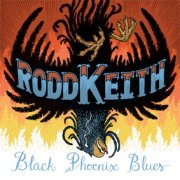 |
Black Phoenix Blues (2013, recorded 196?-?, 44.24) **½/TT |
|
| Green Bermudas Stroll Through the Wildflowers The Game of Love Black Phoenix Blues It Happened Anyhow You and I I Love Lovely Chinese Gal Sing My Death Note |
Let's Get Started The Explosion of Holden 22 Mine I'm Proud to Be a Hippie From Mississippi Bus Driver Stop That Bus Abidin' tuh the Rule Curse of the Grave Too Late for Tears Peaceful Valley |
|
Current availability:
Chamberlins used:
Many of you may well be au fait with what has become known as the 'song-poem' genre, or 'send us your lyrics'; ads in the back pages of magazines promising fame and fortune if you pay some dubious bunch a pile of cash to set your lyrics, however appalling, to music. Rodney Keith "Rodd Keith" Eskelin is the undisputed emperor of this twilight world, despite (or possibly because of) his death in 1974; a talented (if flakey) musician, he slipped into the song poem industry in the '60s, producing some of the least terrible work you'll hear in a genre known for its utter awfulness.
1996's I Died Today is a compilation of what must be but a tiny fraction of his song-poem work, originally released under a wide variety of names. Most are sung by Keith, a couple are even written by him, making me wonder how they fit into the genre, but they all have one thing in common: a relentless, melodramatic cheesiness, designed to appeal to the kind of egomaniacal, taste-free idiots who availed themselves of his services. The overriding musical 'style' on offer here is a kind of pre-psych '60s thing, somewhere between bad early '60s pop and lounge, apparently often first takes and surprisingly musical, all things considered. Since the music's almost universally terrible, the only real way to judge these is on their lyrical content, which (rather improbably) makes Keith's title track the 'best' thing here, a piss-your-pants funny tale of a guy surviving a car crash while his hobo hitchhiker dies, letting his family claim on his 'double indemnity', thinking the hobo's him. Sheer genius. Other mirthful efforts include Irene Walker's Hippy Happy Land (clearly a lady on the verge of breaking out of society's straitjacket), Susan Howard's General Custer's Story Remains Legend (kill all injuns) and Brother Curtis Joyner's split-your-sides I Am A Real American, intoned to perfection by Keith.
So why is this nonsense here? Keith often used a Chamberlin (model unknown) in the studio, substituting it for any number of expensive session musicians. To be honest, it's not always easy to tell where you are or aren't hearing it on the album, so it might be best to take my claims of heavy Chamby use with a pinch or three of salt. Various orchestrations almost certainly emanate from the machine, but the Chamberlin highlight is the instrumental Elmer-21-Century Hop, pitting Chamby guitar (and vibes?) against flutes and saxes in a surprisingly decent mélange of tape-replayism.
Eight years on and Tzadik decided to issue another collection, the grammatically-challenged Ecstacy to Frenzy. Very different to its predecessor, it consists of a mere three song-poems, the rest of the full-length disc being clogged up with two versions of Keith's rambling Shome Howe Jehovason Plays, each over half an hour of tootling organ and clearly drug-fuelled, improvised 'lyrics'; I know Keith used psychedelics heavily, but is this entirely necessary? I suppose fans of the man will be ecstatic (pun intended) to hear his working methods in action, assuming you can apply that description to these jammed-out messes. Of the song-poems, Little Rug Bug and the title track (doubtless how it was spelled originally) contain Chamby flutes, saxes, clarinets and possibly harpsichord in varying measures, making for decent Chamberlin demo discs, if nothing else.
A mere year later, Roaratorio released Saucers in the Sky, a return to the format of I Died Today, featuring no fewer than twenty-six song-poem horrors for our delectation (?), more amusing efforts including Here Comes The Judge, Keith hamming it up for all he's worth, the naïvely anti-drug Don't Be A Dope, Cancel My Order For Love and the frankly bizarre Ravens. Not an awful lot of obvious Chamby, with strings on opener Lettuce And Lace (another piece of classic ludicrousness), brass on Don't Be A Dope, what sounds like various guitar, woodwind and female vocal tapes on Move Along Surfing Girl and background strings on Ship For Home.
2011's (currently) vinyl-only My Pipe Yellow Dream is more of the usual, 'featuring' another selection of deluded idiocy (Surfing Along is particularly lyrically poor, even by the genre's rock-bottom standards), often treated with far more respect than they really deserve by Mr Eskelin, a man who clearly took great pride in his work, come what may. The jewel in the crown is the creepy, racist America The Not So Beautiful, a nutsoid, bigoted tract superbly intoned over a cheesy pseudo-orchestral backing, including an almost certainly personal-to-the-author section regarding the lack of promotion opportunities for manual workers, doubtless tackled with heavy irony by Keith. Quite jaw-dropping. A few obvious Chamby tracks: Deep Velvet has 'are they?/aren't they? woodwinds, although the flutes sound Chamberlinic, strings all over the insane America The Not So Beautiful and, more obviously on religious rant Search Out Your Soul, American and Love Opens The Door and brass and various woodwinds on Red Sports Car.
And they just keep on coming... Since Rodd recorded hundreds, if not thousands of these things, I can see this going on approximately forever, 2013's Black Phoenix Blues being the latest in an ongoing series. 'Highlights' include the title track's terrifying domestic-slavery-charter-set-to-a-slow-blues, clearly the product of a disturbed mind, there's little I can say about Sing My Death Note that isn't already encapsulated in its title, The Explosion Of Holden 22 Mine is a brief, near-as-dammit prose history lesson set to music, while the hilarious I'm Proud To Be A Hippie From Mississippi is clearly an 'answer' to Merle Haggard's Okie From Muskogee. Chamberlin? Naturellement. We get what sounds like cellos on the suitably vaguely Oriental I Love Lovely Chinese Gal, upfront strings on Let's Get Started, background ones on The Explosion Of Holden 22 Mine and I'm Proud To Be A Hippie From Mississippi and a more subtle, pseudo-orchestral part on closer Peaceful Valley.
I'm sure Keith's fans will accuse me of a lack of a sense of humour with regard to his work, to which I say: not at all. Some of I Died Today's contents had me doubled up with laughter, but I'm afraid I have trouble taking Keith's undoubted major talents seriously, mainly due to the horrible, dated setting in which he used them. Writing music to the lyrical tosh he was sent is a skill all its own and, compared to some of the horrors I've encountered (the funniest, by some way, being John Trubee's deathless Peace & Love, better known as Blind Man's Penis, although it was done as a prank), so kudos to Mr. Eskelin for that. His early death was undoubtedly tragic - the jury's still out on whether it was entirely accidental (he fell from a freeway bridge), drug-fuelled, or suicide (or any combination of the above) - but at least there seem to be untold hours of what he considered his musical prostitution to, er, enjoy. Oh, and with only a handful of obviously Chamberlinic tracks over all of these albums, I wouldn't especially bother on that front.
See: Bert Lowry | Rod Rogers | Jim Wheeler | Debbie Davies
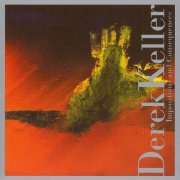 |
Impositions & Consequences (2007, recorded 2001-2006, 54.45) ***/T½ |
|
| Attitudes ... Self Reflection (version 2), for Electric Guitar and Computer Fear... Ever Present, for Amplified Flute, Guitar, Cello, Percussion & Instrumentalists' Voices 7 6 5 4 3 2 1 |
Morpheus, for Percussion Quartet Impositions and Consequences b3 D1 Improvisation Over AJ AM Improvisation Over ONM AJ Cd2 Improvisation Over ONM Improvisation Over AM Ac4 Ba |
|
Current availability:
Mellotron used:
Derek Keller is a Ph.D-level modern classical and jazz composer and guitarist, so it shouldn't come as any great surprise to hear that 2007's Impositions & Consequences, recorded at various sessions over several years, is a challenging work, shifting between Attitudes ... Self Reflection and the title track's crazed metal guitar, choral bursts and percussive obliqueness and Fear... Ever Present and Morpheus' percussion-led approach.
Christopher Adler plays real-sounding Mellotron on the multi-part title track, with upfront strings on B3, the first Improvisation Over ONM, Cd2 and the second Improvisation Over ONM. Source? Unknown, but given John Zorn and the Tzadik label's involvement, it just might be John Medeski's M400. Then again, it might not. Hard work for ears attuned to more mainstream tonalities either way.
 |
Almost Honest (2005, 54.24) *½/½ |
|
| Walk Fast Only You Love is Breaking My Heart Almost Honest Didn't Hear That From Me 20 Miles to Georgia Lover Come Up Shameless Heart |
Too Good to You I Don't Mind Singing Hard Times Happen Lydia |
|
Current availability:
Chamberlin used:
Although Josh Kelley is from a small country music dynasty, his first several albums are more in a straightforward singer-songwriter pop vein, although he's apparently recently moved across to the dark(er) side. Possibly the most telling thing I can say about his second release, 2005's Almost Honest, is that it reminds me in places of those slightly funky, slightly soullike mid-'70s pop albums that those of us who knew better avoided like the plague at the time. Horrible. Worst examples? Lover Come Up and closer Lydia are full-on dreadful, but I bet this sold loads.
Zac Rae plays Chamberlin, although it's difficult to tell where (again), given that the album also features real and sampled strings, but the most likely candidate is the strings on Didn't Hear That From Me. Y'know what? You don't want to hear this any more than I did. Planet Mellotron: listening to the utter tape-replay-containing shite so that you don't have to.
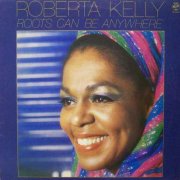 |
Roots Can Be Anywhere (1980, 44.24) ***/½Kabaka ShakaMiel Masai Aie Little Mary Joe Roots Can Be Anywhere Lady Jive Unless We're Gonna Change it Tribute of Love Coconut Rock |
Current availability:
Mellotron used:
Roberta Kelly is an American soul singer popular in the disco era, although it's been some time since her last release. Her fourth album, 1980's Roots Can Be Anywhere, contains an intriguing mix of funk, soul and the then-emergent 'world' styles, the latter particularly evident on the title track, while Unless We're Gonna Change It points towards a more '80s sound, for better or worse. Kelly's stunning voice is the glue that holds this rather disparate record together, making it a shame that she never really made the transition into the new decade.
Jim Taylor plays Mellotron, with a deep choir part on Unless We're Gonna Change It, although that would seem to be your lot. So; a surprisingly decent album from the genre/period, although, generally speaking, soul/funk/disco records are nothing if not impeccably-played. Next to no Mellotron, though, so don't put too much effort into tracking this one down.
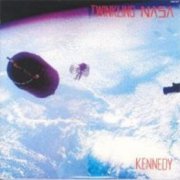 |
Twinkling NASA (1986, 42.15) ***½/TTwinkling NASABurning Days Flying Ship part 1 Elliptic Orbit Explorer 1958 ALFA Boctok Prelude Flying Ship part 2 Florida |
Current availability:
Mellotron used:
Kennedy's only studio album, Twinkling NASA, sounds quite unlike most Japanese prog, although it does have more than its fair share of bad '80s synths, as did just about everything from that era. There's a fusion influence at work here (listen to Explorer 1958 ALFA), though it's far from overriding and remains precisely that: an influence. Other than that I find this album quite difficult to describe; energetic instrumental prog with some ripping guitar and synth work, reasonably complex 'song' structures... Will that do? There's even a sampled rhythm track on Boctok, with which the band play along with vigour, so there's no way you could accuse them of living in the past.
After a couple of tracks that made me think the album's 'Mellotron' tag was a misnomer, Flying Ship Part 1 rocks up with a full-on strings part, alongside the generic '80s synths, probably played by regular keys guy Atsushi "Juju" Kitaoka, although Fukami Seiichi and Senba Motoi also guest. This is now available again from Japanese imprint Nexus, but it's really not worth it for its fairly minimal Mellotron use.
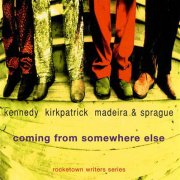 |
Coming From Somewhere Else: The Rocketown Writers, Vol. 1 (2000, 40.46) **/T |
|
| Coming From Somewhere Else That Kind of Love Grand Canyon Hunger and Thirst Man After Your Own Heart Place in This World You Move Me Everywhere I Look |
Via Dolorosa Change the World |
|
Current availability:
Chamberlin used:
Gordon Kennedy, Wayne Kirkpatrick, Phil Madeira and Billy Sprague are all better known as writers than performers, making 2000's Coming From Somewhere Else: The Rocketown Writers, Vol. 1 more of a 'greatest hits by the actual writers' album. Try as I might, I can't trace any more volumes in the series, leading me to suspect that nobody much bought this one. The more observant amongst you may've noticed that the quartet are all known as Christian artists, so it comes as little surprise to hear various goddy lyrics, originally recorded by the likes of Susan Ashton, Phil Keaggy, Michael W. Smith and, er, Eric Clapton, not a man known for his Christian credentials. Are there any better tracks? Possibly Everywhere I Look and Via Dolorosa, but only because they're the least limp tracks on an outstandingly limp album.
Madeira plays (his own?) Chamberlin, with flute and string parts on Everywhere I Look. While it would've been nice had he used it more, it wouldn't have improved this tedious record.
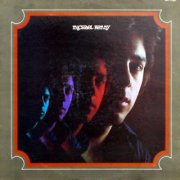 |
Michael Kenny (1976, 31.24) **/T |
|
| Closer to the Music I Can Almost See the Light I Bet He Won't Midnight Cruiser Morning I'll Be There One Night Stand You Are the Song (That I Can't Stop Singing) |
Devil's on the Loose (on 7th Avenue) Emily |
|
Current availability:
Mellotron used:
Michael Kenny? No idea, squire. Ignoring obvious 'that's not him' Discogs entries, it seems he recorded a clutch of singles and a lone, eponymous album for an American indie label in the mid-'70s, before disappearing back into obscurity. Someone must've thought he was a commercial proposition, stumping up the cash for session players of the calibre of guitarist David Spinoza, drummer Rick 'brother of Jerry' Marotta and keyboard player Ken Ascher (John Lennon, many others), but the best they can do with this sorry collection of soft-rock-bordering-MOR material is to make it sound soullessly professional. Any better tracks? Possibly Midnight [sic.] Cruiser, solely because it's a Steely Dan cover.
Speaking of which, I presume it's Ascher playing the Mellotron flute arrangement running through Midnight Cruiser, doubling-down on its 'least bad song on the album' status. Despite its relative obscurity, you can pick Michael Kenny up for next to nothing on Discogs, should you feel the need. I wouldn't bother though. No, really.
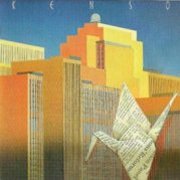 |
Kenso III (1985, 40.08) ***½/T |
|
| Sacred Dream I Power of the Glory The Breeze Whispered Through My Mind Far East Celebration La Liberté de l'Esprit Patter of the Groovy Turn to Solution Nostalgia |
Sacred Dream II Beginnings |
|
Current availability:
Mellotron used:
Kenso are one of Japan's finest progressive bands, although they're rarely mentioned in discussions on Japanese symphonic prog (unbelievably, these do actually happen). Their early albums, at least, are fusion-inflected instrumental progressive of a high standard, with occasional bursts of full-on symphonic prog; Kenso II is particularly good. Kenso III, from three years later, isn't quite up there, but is still an excellent listen, although, as with so many albums from this genre, multiple listens will no doubt reveal its charms more fully.
Surprisingly, maybe, Yoshihisa Shimizu uses a Mellotron on a few tracks, as he didn't before or since, so unsurprisingly, there's only one track, Nostalgia, that uses it to any great degree, with a fairly decent strings part. Sacred Dream I and Power Of The Glory have lesser string parts, but that appears to be your lot. So; good album, fairly mediocre Mellotron, hear their second album first, if you get my drift.